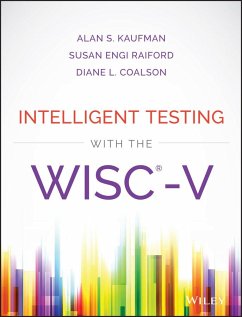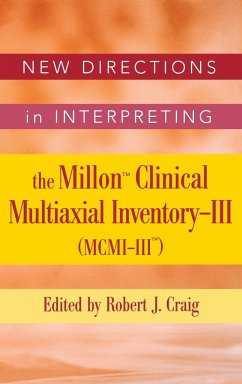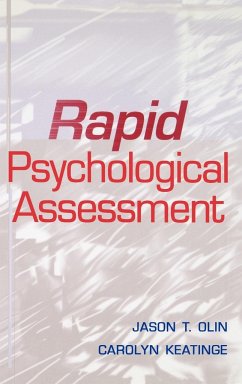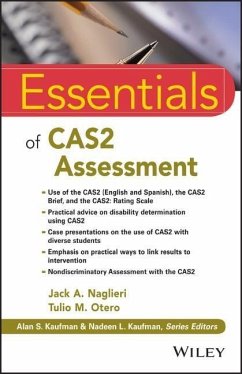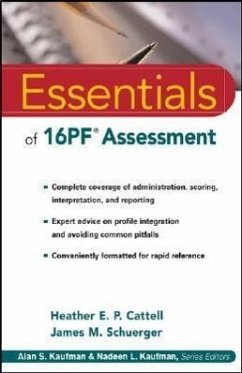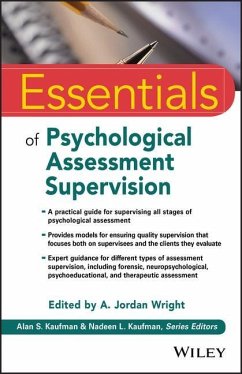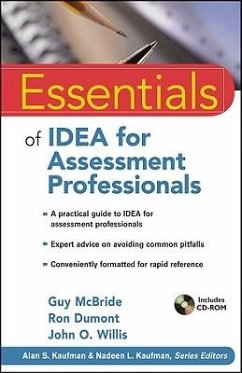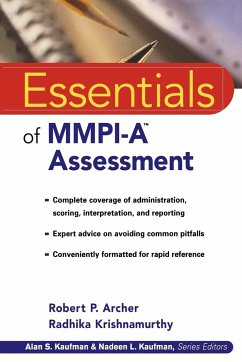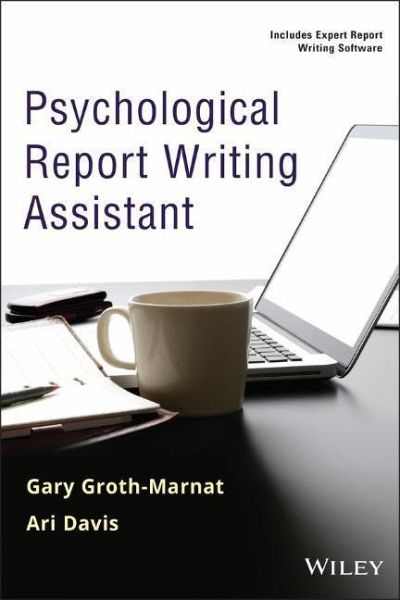
Psychological Report Writing Assistant
Versandkostenfrei!
Versandfertig in über 4 Wochen
52,99 €
inkl. MwSt.
Weitere Ausgaben:

PAYBACK Punkte
26 °P sammeln!
Expert Report Writing Software-provides a step-by-step guide to writing clinically sound and rich psychological reports The Psychological Report Writing Assistant software is a highly interactive program that guides the report writer through all phases of writing a report that is comprehensive, includes integrated interpretation, uses everyday language, and answers the referral questions. Key features include: * A composition screen with links to resources to facilitate report writing * Sample reports with links to guidelines on how to write sections of the report * A comprehensive menu of tre...
Expert Report Writing Software-provides a step-by-step guide to writing clinically sound and rich psychological reports The Psychological Report Writing Assistant software is a highly interactive program that guides the report writer through all phases of writing a report that is comprehensive, includes integrated interpretation, uses everyday language, and answers the referral questions. Key features include: * A composition screen with links to resources to facilitate report writing * Sample reports with links to guidelines on how to write sections of the report * A comprehensive menu of treatment recommendations * Search function to identify problem phrases with suggestions for alternative wording * Compatible with Microsoft(r) Windows and some Mac Windows emulator software Blending the best of science with an appreciation for the art of doing clinical work, the accompanying guide: * Describes six core qualities of an optimal psychological report * Provides an overview of cognitive, neuropsychological, personality, psychoeducational, and forensic reports * Offers guidelines for formatting and completing various sections of a report * Discusses recommendations for treatment and for tailoring the report to the individual * Includes instructions for navigating the software Filling the need for an easy-to-use, intuitive tool for organizing and writing relevant psychological reports, Psychological Report Writing Assistant will help you quickly and easily create thorough and complete psychological reports.



